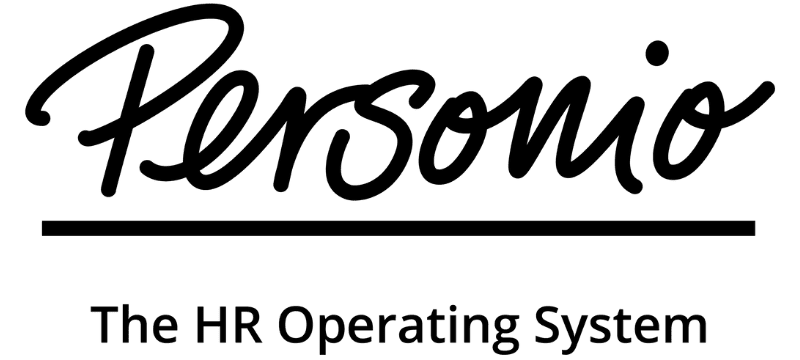Turning the tide on the talent exodus
Understand the top reasons for resignations in Europe today based on new research-driven insights into key issues for HR to tackle now.
Uncover the looming productivity crisis and what’s going wrong before people leave.
83% of employees state that a good workplace culture helps their productivity – what can HR leaders do to help create this?


The ‘Great Resignation’ is on everybody’s lips just now, so you could be forgiven for thinking that HR and people strategy has never been more important for organizations today. But in a recent study, 39% of HR decision-makers do not cite people strategy as a top priority for their business.
Watch this on-demand session with UNLEASH and Ben Kiziltug, Head of Northern Europe at Personio as they unpack the findings of new research with 500 HR decision-makers and 2000 employees and discover how HR can turn the tide on this talent exodus as:
- 46% of HR leaders say they lack the data and insights they need to support the business
- 50% believe they do not have a big enough reach and influence within the business
- 69% of employees struggle with low morale, burnout, and Zoom fatigue
While HR leaders acknowledge the role that a declining work-life balance might have on a talent exodus, they do not recognize that a toxic workplace culture also has a crucial role to play in worsening employee wellbeing. This disconnect could cause a talent exodus if HR teams don’t act quickly. Watch the on-demand session now, to find out what HR leaders can do to prevent it.
The talent exodus is on the horizon
With 38% of employees looking to change roles in the next 6-12 months, according to Personio’s research, what does this mean for the organization and HR specifically? Ben hit home by outlining that for a 200 person company, this could mean losing 75 employees. It’s clear from the staggering findings, summarized in this on-demand session, that there needs to be a strategy to counter this nearing reality, and with only 45% of HR decision-makers worrying about employees leaving, it needs to become a priority sooner rather than later. Ben further outlined findings from the research that uncovered a clear mismatch between HR leaders’ priorities and the organization’s.
Most HR leaders will be familiar with the commentary on the “Great Resignation” by now, but, what was staggering from this session and the research Personio have undertaken, is the financial impact of this being weighed up and presented in black and white. The session highlighted figures on the impact on the individual business, small business specifically, and on the entirety of the UK and Irish economies (a whopping £17 billion hit put down to overall potential costs of a talent exodus).
The figures are clearly there that the talent exodus that is on the horizon, let alone what turnover has already occurred, has to become a priority for both HR leaders and for the organization at large, even if the financial implications are the only consideration.
The reasons for resignations?
This great piece of research from Personio helps, also, to not just determine the costs and implications of the talent exodus, but also tries to nail down the drivers for resignation at the individual and organizational level, to help provide HR leaders with a toolkit to prevent talent drain and the subsequent varied costs to the business.
Ben highlighted statistics around the believed causations from employees and HR leaders, signaling worsening work/life balance; pay freeze or cut; toxic workplace culture; reduction in benefits and being furloughed. He also noted another disconnect between HR leaders and employees on these causations.
We don’t always know if we have a toxic workplace culture… If this talent exodus does happen, some HR leaders and organizations won’t even know they have a problem until the horse has already bolted.
Ben Kiziltug, Head of Northern Europe, Personio
His solution to this is enabling and supporting a communication channel between employees, line managers, and HR leaders in order to diagnose toxic cultures or where there are disconnects in levels of support and individuals feeling poorly managed (he cites areas like career development, mental/physical wellbeing, culture, internal comms, resource management, and the balance of work/life as reasons for people wanting to leave). Ben also noted that the facilitation of this channel and employee-listening has to be scalable and sustainable.
An exodus and a productivity drought?
This session also shows watchers that there is no silver bullet for improving the drain on talent, nor the productivity drought that many HR leaders are witnessing. Ben told the audience of the webinar that situations are very individualized, so the solution will stem from understanding the composition of our teams and the resources in place to make them productive, and ultimately want to stay.
And HR leaders need to sit up and pay attention, as again, another hard-hitting statistic was shared, that the total loss of economic output in the UK and Ireland was around £8 billion.
Being aware of how we are showing up as leaders can make a massive difference.
Ben Kiziltug, Head of Northern Europe, Personio
In their research, Personio uncovered a number of factors that are contributing to poor productivity, including, zoom fatigue, burnout, low levels of motivation and morale, distractions when working, and childcare along with workload. Interestingly, they found another disconnect in perspectives from employees and HR leaders, specifically with HR not having morale and motivation on their radar really at all.
This research underpins the need for empowering employees and having workplace cultures that are not at the detriment of aspects of morale and motivation and that potentially workplaces have lost their way with the human connection they have with their employees.
The changing role of HR
Why are we not all investing into this strategic priority? Why are we not putting a strategic people plan in place?
Ben Kiziltug, Head of Northern Europe, Personio
Ben rounded up the session by discussing how HR has changed and that there is light at the end of the tunnel. With their research at Personio unveiling that 24% of HR decision-makers believe there has been a greater strategic focus on people within the organization and 67% saying people strategy is a priority among employers, it’s clear that HR is becoming strategically stronger and finding itself at the executive table more often.
However, there are clearly still barriers to influence, including too much admin, constrained budgets, not enough time/resource but most importantly, 46% say the HR function lacks data and insights that it needs in order to support the business in the best possible way.
Hopefully, some of the statistics shared from this Personio research will help HR leaders to make the business case for more data, insights, and strategic leverage. You’ll also have to watch the on-demand video to hear Ben’s checklist for powering up your people strategy to enable you to address the potential talent exodus and productivity drought in your own context.
